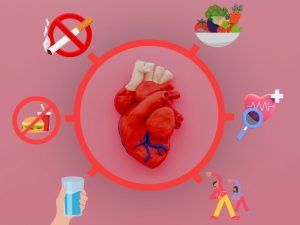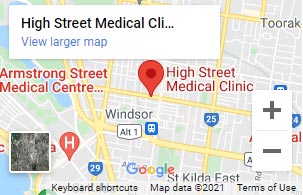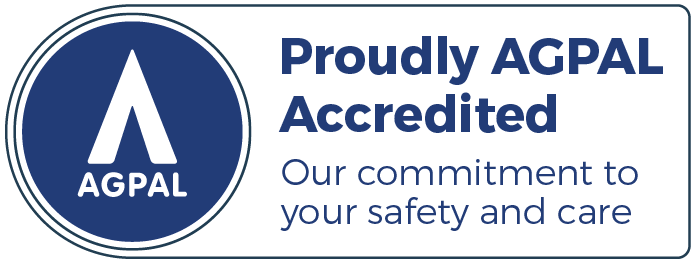Updated: 5, July 2024
Diabetes is certainly a prevalent condition, it affects 1 in 20 Australians, and it’s a serious concern too.
Many vital organs are impacted by diabetes, which in turn, can be devastating to daily life IF not managed properly.
As National Diabetes Week (14 – 21 July) approaches, we shed light on this condition that affects millions worldwide
Read on to get an understanding of diabetes, plus:
Its implications
- How people ‘get’ diabetes
- Diabetes symptoms and how the body is affected
- Some interesting facts
- Management methods, and
- The importance of professional care
What diabetes is and why it’s so serious
Diabetes is a chronic health condition that occurs when the body cannot effectively regulate blood sugar levels.
‘Chronic’ means long lasting or ongoing in medical terms. Sadly, it’s often a lifelong condition with no cure.
There are three main types of diabetes:
- Type 1 Diabetes
- An autoimmune condition where the body attacks insulin-producing cells in the pancreas.
- Type 1 diabetes typically develops in children, adolescents, and young adults, but it can occur at any age. Unlike Type 2 diabetes, it is not related to lifestyle or diet.
- Type 2 Diabetes
- The most common form, where the body becomes resistant to insulin or doesn’t produce enough.
- A family history of Type 2 diabetes significantly increases the risk as can poor diet and other lifestyle choices.
- Gestational Diabetes
- Occurs during pregnancy and usually resolves after childbirth but increases the risk of developing type 2 diabetes later in life.
Since Type 1 and Type 2 are the most common and can affect a very wide range of lifestyles, we’ll be focusing on them in this article.
The seriousness of diabetes
Diabetes is serious because high blood sugar levels can lead to severe complications, including heart disease, kidney failure, nerve damage and even vision loss or damage.
Managing diabetes properly helps prevent these outcomes and maintains a good quality of life.
So, how do people ‘get’ diabetes?
The onset of diabetes varies with its type:
- Type 1 Diabetes: The exact cause is unknown but it can often involve genetics. The immune system mistakenly attacks insulin-producing cells, leading to little or no insulin production.
- Type 2 Diabetes: Often linked to lifestyle factors as well as genetics. Being overweight, a sedentary lifestyle, or having a family history of diabetes increases the risk. It usually develops over a few years and can be delayed or even prevented with healthy lifestyle changes.
Check if you’re at risk of developing diabetes.
The diabetes risk assessment tool by the Department of Health and Aged Care is a quick, simple and free way to check your risk level.
Important: If you score over 12 then you should book an appointment with your GP immediately.
Diabetes symptoms
Symptoms can vary from person to person, especially in terms of severity, but here are some common ones:
- Increased thirst and frequent urination
- Extreme hunger
- Unexplained weight loss
- Fatigue
- Blurred vision
- Slow-healing sores
- Frequent infections
Over time, unmanaged diabetes can damage body systems such as:
- Cardiovascular System: Increases the risk of heart disease, stroke, and high blood pressure
- Kidneys: Can lead to chronic kidney disease or kidney failure likely requiring dialysis
- Nerves: Causes neuropathy which is nerve damage causing pain, weakness, numbness or tingling
- Eyes: Can result in diabetic retinopathy, potentially leading to blindness or vision impairment
- Feet: Poor circulation and nerve damage increase the risk of foot ulcers and infections
Managing diabetes
Effective management of diabetes can mean diabetic people living an active, healthy life with minimal or even no disruptions to their daily lives.
Management involves a combination of healthy lifestyle choices, monitoring, check-ups and medication.
Here are some key strategies:
- Healthy Eating: Focus on a balanced healthy diet and try to eat meals like clockwork, at the same times each day. Monitor carbohydrates to manage blood sugar levels.
- Exercise: Aim for at least 150 minutes of moderate activity per week. This helps control weight, lowers blood sugar.
- Monitor Blood Sugar: Regularly check blood sugar levels to ensure they are within the target range.
- Medication: Depending on the type of diabetes, medication may include insulin injections or oral hypoglycemic agents. Always follow your doctor’s instructions.
- Regular Check-ups: Routine visits to HSMC mean monitoring and managing any complications are essential.
If you or someone you care about is affected by diabetes, we’re here to help. HSMC offers a range of services in support of managing and preventing diabetes, which include weight loss and management, dietary support and coping skills.
Interesting facts about diabetes
- Over 460 million people worldwide have diabetes, and this number is expected to rise
- Type 2 diabetes can develop gradually and go undiagnosed for years due to its mild initial symptoms
- In some cases, lifestyle changes can lead to remission of type 2 diabetes, meaning blood sugar levels return to a normal range without the need for medication
- Ongoing research aims to find a cure for diabetes and improve treatment methods
- Type 2 diabetes is increasingly being diagnosed in younger populations due to rising obesity rates
The importance of professional help
While better lifestyle changes are important in managing diabetes, professional medical advice and care are irreplaceable.
Your doctor can:
- Offer personalised care plans based on your health needs
- Monitor for complications and provide timely interventions
- Adjust medications as needed to achieve optimal blood sugar control
- Provide education on managing diabetes, that’s for parents and caregivers too
National Diabetes Week is an excellent time to focus on diabetes care and management.
Take the first step: Book an appointment
Your health is our priority. Regular check-ups and proactive management can make a massive difference in living well with diabetes, often resulting in diabetic people never missing or struggling with what life serves them.
Schedule an appointment with us to discuss your diabetes care plan.
Book your appointment online now.












